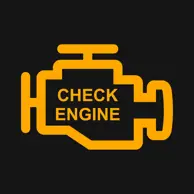08 January 2025
Does car insurance cover engine failure?
5 minutes
There are several reasons why a vehicle’s engine might stop working, but does car insurance cover engine failure when it happens?
The short answer is that it depends on your level of coverage and how the engine failure occurred in the first place.
In this article, we break down the different types of car insurance and explain how they relate to engine failure. We also explore the various causes of engine failure and share the steps you can take if your car’s engine stops working.
Don't get caught out. Sign up for your MOT reminder now. Check MOT
Car insurance and engine failure: coverage levels matter
To answer the question, “Will insurance cover engine failure?” your first port of call is to check your car insurance coverage level. There are three types of car insurance cover in the UK: third-party-only, third-party, fire and theft, and comprehensive.
1. Third-party-only (TPO) car insurance
Third-party-only (TPO) car insurance is the most basic level of coverage you can get. As the name suggests, it only covers damage or injury to third parties involved in an accident or collision that’s your fault. This means you won't be covered if you have TPO insurance and your engine stops working following an accident you caused.
2. Third-party, fire, and theft (TPFT) car insurance
Third-party, fire and theft (TPFT) car insurance is the next level up, covering you against damage and injury to third parties, fire damage to your vehicle, and your car being stolen. However, TPFT insurance could potentially protect you against engine failure if you can show it was caused by a fire.
3. Comprehensive car insurance
Comprehensive car insurance is the broadest level of coverage you can get — and the most likely to protect you against engine failure. However, it still depends on how the engine failure occurred.
For example, if it stops working due to damage caused by an accident, vandalism, theft, or a natural disaster, your policy should cover you. But if your engine fails due to normal wear and tear or a lack of maintenance, you probably won’t be able to make a claim.
Let’s take a closer look at how to spot engine failure and the common causes behind it.
Engine failure: definition and causes
What is engine failure? + How to recognise it
“Engine failure” is a blanket term for when your engine stops working correctly or altogether.
You can usually spot engine failure if you notice one or more of the following:
- The engine warning light on the dashboard switched on (see image below)
- Strange noises coming from the engine or under the bonnet
- Smoke coming from the engine or exhaust
- A temporary or complete loss of power (i.e., you turn the ignition, and nothing happens)

Read more: Car Warning Lights Explained: Your Guide.
Common causes of engine failure
Engine damage can be caused by the following:
- Mechanical wear and tear: Engines have lots of moving parts. The older the engine, the more likely it will start to break down over time.
- Lack of regular maintenance: Engines must be regularly maintained to ensure they continue to work as required for as long as possible. You should top up your oil as needed to lubricate the moving parts and remove dirt and debris from the engine. You should also check your coolant levels to prevent your engine from freezing or overheating.
- Manufacturer defects: Not all engines are made equal. You may find that yours has an issue due to how it was built. While your insurance probably won’t cover this, you could seek a repair or replacement if your car is under warranty.
- External causes: Issues outside your control, such as road traffic accidents, inclement weather, vandalism, or damage due to theft, can all result in engine failure.
It’s important to note that engine failure can happen suddenly or slowly over time. For instance, if you’ve been involved in a collision with another vehicle, you might immediately notice material damage to the outside of your car. However, something could have also been knocked loose in your engine, resulting in it failing further down the road.
It’s essential to have your engine checked after an accident, even if everything seems to be working correctly.
Steps to take if your engine fails
What to do with a car with a blown engine?
If your car suddenly loses power while you’re behind the wheel, you must pull over as soon as it’s safe. Try to avoid stopping anywhere dangerous or where you could obstruct other road users.
If your engine fails on the motorway, pull onto the hard shoulder, put your handbrake and hazard lights on, and exit the vehicle via the left-hand side. Stand behind the crash barrier and call for assistance.
Once roadside assistance arrives, they’ll try to fix your car. If they’re unable to do so, they’ll tow your vehicle to a garage.
Can you claim car repairs on insurance?
To claim engine failure repairs on your car insurance, you’ll need to show your insurance company that it was caused by an issue outside your control, like an accident, flooding, or fire (and not due to a lack of maintenance or wear and tear).
- First, contact your provider to check that your car insurance policy covers the cause of your engine failure.
- Next, gather evidence and documentation regarding the incident that led to the engine failure, including feedback from your mechanic.
- File a claim with your insurance company. If you’re a Howden customer, you can do that here.
- Your insurer will send your car to one of their approved garages for inspection. If their mechanics determine that your engine can be repaired, that will be arranged. Otherwise, it may need to be replaced.
- However, if the repair/replacement is more expensive than the car’s market value, it will be written off.
Optional extras and add-ons for engine protection
In addition to having fully comprehensive car insurance, you may want to explore some handy optional extras and add-ons to protect yourself in the event of engine failure. These include:
- Extended warranties: Taking out an extended warranty with the manufacturer or dealership could provide you with more protection and may cover repairing or replacing a faulty engine, depending on the terms and conditions.
- Wrong fuel cover: Accidentally putting the wrong fuel in your car and starting it can severely damage the engine. Wrong fuel cover can help you avoid potential engine failure by sending a specialist to drain the fuel tank, flush the system, and refill with the correct fuel.
- Breakdown cover: If you’ve broken down due to a faulty or failed engine, breakdown cover can provide roadside assistance, recovery, and vehicle repairs. Howden works with both AXA Assistance and RAC Breakdown, allowing us to provide our clients with coverage 365 days a year and 24 hours a day.
- Courtesy car cover: If your engine has failed, courtesy car cover can get you back on the road while your vehicle is undergoing repairs.
Make sure you’re covered with Howden Insurance
Howden’s insurance brokers can find you a fully comprehensive car insurance quote that suits you, offering the highest level of protection while keeping you as financially unaffected as possible in the event of an accident. Find out more here.
Related articles:
Does car insurance cover lost keys?
- Free MOT checker - Check a vehicle's MOT history
- Free Car Tax Check: check if your vehicle is taxed
- UK car tax changes 2025: what you need to know
- Car Insurance Group Checker
- Car Insurance Groups [A Complete Guide]
- CAR INSURANCE GUIDES

Hear from our insurance expert...
What’s one thing I should definitely consider before buying a car insurance policy?
"Named drivers can completely change the premium of your policy, both positively and negatively. It's worth adding someone to your policy, even if you don't need them and evaluating the necessity of a driver already on the policy."
Lewis Houghton, car insurance expert
Why choose Howden Insurance?

Rated 'Excellent' on Trustpilot

500,000+ Protected Clients

Insuring for 30+ years

Insurance Broker of the decade
More resources
Latest car insurance guides
Everything you need to know about cars and the insurance policies which cover them. Explore more topics in our Car Insurance Guides.
- Your guide to Cat S car insurance
- If my car is written off what happens to my insurance-policy?
- When does my car insurance run out?
- Can you use a no claims bonus on two cars?
- Car insurance for non UK residents
- How much voluntary excess should I pay on car insurance?
- Can you drive a SORN car to an mot without insurance?
- What are car insurance occupation categories?
- Car insurance change of address: what to know
- Car insurance without a black box: what to know
- Car insurance cancellation laws in the UK
Other car guides
Learn more about the ins-and-outs of cars through our car guides:
MOT guides
- Free MOT checker - Check a vehicle's MOT history
- MOT FAQs - Everything you need to know about MOTs
- Motorcycle MOTs: All you need to know
- What Does MOT Stand For? MOT Terms Explained
- Your complete MOT checklist
- When do I need an MOT?
- Can You Insure a Car Without an MOT?
- Can You Tax a Car Without an MOT?
- What MOT Class is My Vehicle?
- How long does a MOT take?
- Drive without an MOT - what you need to know
- How to report a car with no MOT
Owning a car
- All the Info You Need on Your V5C Log Book
- V5C New Keeper Slip: How to Change a Car’s Registered Keeper
- How to change a car battery
- What does a car service include?
- How much oil does my car need? A handy guide
- Car warranty cover: What to know
- What is ESP on a car?
- How long do car tyres last?
- How long does a car battery last?
- Wrong fuel in your car? Here’s what to do
- Car Insurance Groups [A Complete Guide]
- Car Insurance Group Checker
- New registration plates for 2025: UK number plates explained
Car Tax
- Free Car Tax Check: Check if Your Vehicle is Taxed
- UK car tax changes 2025: what you need to know
- Can You Tax a Car Without an MOT?
- How to tax a car: Your complete guide
- How much will electric car tax be?
- Can you tax a car without insurance?
Modified Car
- Modified Car Insurance FAQs
- Is modified car insurance cheaper?
- How much is modified car insurance?
- Does your insurance go up if you modify your car?
- Driving a modified car and don’t know it?
- Can you get modified van insurance?
- Can you modify a financed car?
Classic Cars
